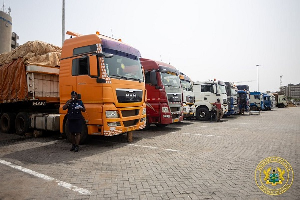Albert Kan-Dapaah, immediate past-Chairman of the Public Accounts Committee of parliament, says subsidising petroleum products in any form by government has a tendency to ruin the country’s fiscal stability management, and must therefore not be tolerated anymore.
He said it has become economically prudent for Ghana to totally scrap costly fuel subsidies to help restore fiscal stability after the country has been burdened with overshooting budget deficit targets over the years.
Ghana’s budget deficit continues to swell due to excess public sector wages, a shortfall in projected tax revenue, and rising costs for fuel subsidies. The cost of subsidies last year reached one billion Ghana cedi, and was expected to rise to 2.4 billion Ghana cedi this year.
According to the former Energy Minister, fuel-cost subsidy is a desperate and ill economic policy that must not be encouraged. Ghana has always been pressured by the International Monetary Fund and the World Bank to cut off the subsidies, which they describe as wasteful and inefficient.
Mr. Kan-Dapaah was speaking at a sensitisation workshop in Sunyani. The workshop saw in attendance media practitioners, civil society activists and a section of the general public, and was part of the Citizen’s budget road-show organized by Financial Accountability and Transparency Africa (FAT-Africa), a Think Tank, and Penplusbytes, an NGO.
The concept behind the roadshow is to make national budget information readily accessible to citizens through the publication of a “Citizen Friendly Budget” version, presented in a language devoid of technical economic jargon and in a format that the ordinary people can understand.
He stressed the need for the general public to get an understanding of the budget as government’s economic policy document. This, he noted, will bequeath the citizenry first-hand information about the country’s expenditure and fiscal management direction.
He advocated a stringent and effective public financial management system at Ministries, Departments and Agencies (MDAs) to check misappropriation of funds and corruption, saying: “Lack of financial management discipline in the public sector is taking a huge toll of the public purse”.
He therefore urged the public to demand accountability from the government to help ensure judicious utilisation of public funds.
General News of Friday, 14 November 2014
Source: B&FT













